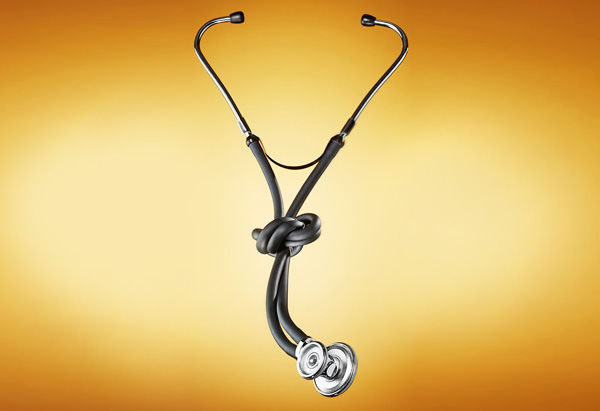4 Ways to Avoid Serious Medical Mistakes
Medical mess-ups happen every day. Two industry insiders share crucial tips for making your healthcare more careful.

Photo: Dan Saelinger
Heart disease and cancer are the two leading causes of death in the United States. Number three? Medical mistakes. A staggering 500,000 Americans die each year due to preventable errors, according to estimates by pharmacologist Joe Graedon and medical anthropologist Teresa Graedon, PhD. In their new book, Top Screwups Doctors Make and How to Avoid Them, the Graedons expose the sources of physician error. We asked them to diagnose four common flubs—and prescribe the cure.
A 2009 study of more than 5,000 patients at 23 facilities found that about one in 14 patients with abnormal lab results isn't told about them. As a result, serious conditions go unchecked.
Remedy
When it comes to test results, no news isn't necessarily good news, Joe says. Find out when you should expect to hear from your doctor, and if you don't hear by then, call.
Physicians take what you tell them and look for the most obvious explanation. As often as 15 percent of the time, they're wrong, according to a study by researchers in Chicago, Boston, and San Diego. Patient-safety experts estimate that misdiagnoses lead to as many as 100,000 deaths in the United States annually.
Remedy
Protect yourself from mistakes by asking questions: "Do any of my symptoms not fit the diagnosis?" "What else could it be?" "How confident are you?" If you fear something's been overlooked, say, "I'm not sure I mentioned all my concerns. Can you tell me what you heard?"
We've all seen those drug ads with their long lists of side effects. How do doctors keep track of it all? They often don't. What's more, many medicines have adverse interactions with other drugs; each year at least 1.5 million Americans are seriously harmed by conflicting prescriptions, like the antibiotic Bactrim and blood pressure pill Vasotec, a combination that can cause dangerously high levels of potassium.
Remedy
Be sure to inquire about side effects, and provide your doctor with a list of all the medicines, vitamins, and supplements you take regularly.
Next: What to do when doctors condone bad behavior
Lost Lab Results
A 2009 study of more than 5,000 patients at 23 facilities found that about one in 14 patients with abnormal lab results isn't told about them. As a result, serious conditions go unchecked.
Remedy
When it comes to test results, no news isn't necessarily good news, Joe says. Find out when you should expect to hear from your doctor, and if you don't hear by then, call.
Misdiagnosis
Physicians take what you tell them and look for the most obvious explanation. As often as 15 percent of the time, they're wrong, according to a study by researchers in Chicago, Boston, and San Diego. Patient-safety experts estimate that misdiagnoses lead to as many as 100,000 deaths in the United States annually.
Remedy
Protect yourself from mistakes by asking questions: "Do any of my symptoms not fit the diagnosis?" "What else could it be?" "How confident are you?" If you fear something's been overlooked, say, "I'm not sure I mentioned all my concerns. Can you tell me what you heard?"
Careless Prescribing
We've all seen those drug ads with their long lists of side effects. How do doctors keep track of it all? They often don't. What's more, many medicines have adverse interactions with other drugs; each year at least 1.5 million Americans are seriously harmed by conflicting prescriptions, like the antibiotic Bactrim and blood pressure pill Vasotec, a combination that can cause dangerously high levels of potassium.
Remedy
Be sure to inquire about side effects, and provide your doctor with a list of all the medicines, vitamins, and supplements you take regularly.
Next: What to do when doctors condone bad behavior



